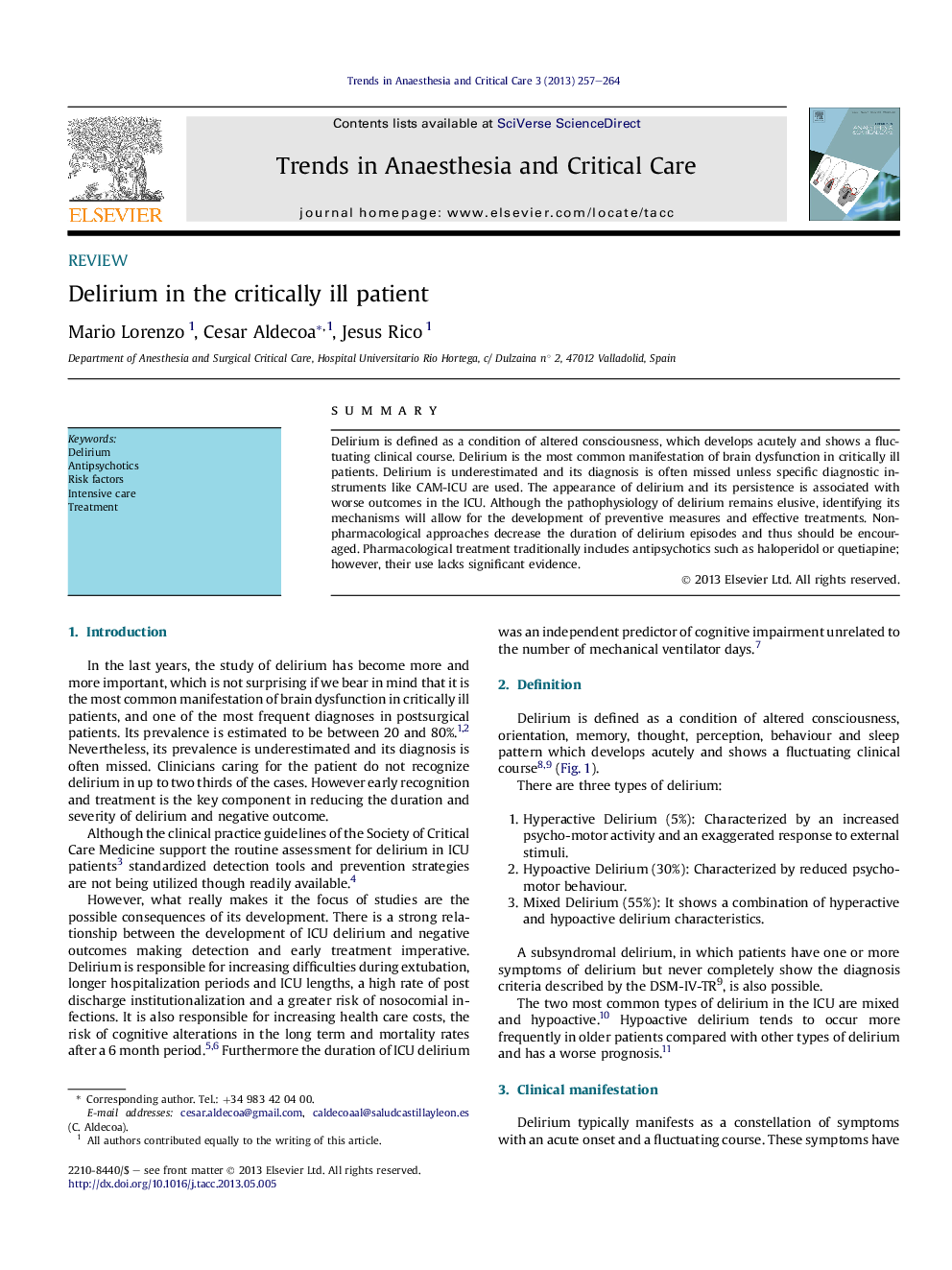| Article ID | Journal | Published Year | Pages | File Type |
|---|---|---|---|---|
| 2772755 | Trends in Anaesthesia and Critical Care | 2013 | 8 Pages |
SummaryDelirium is defined as a condition of altered consciousness, which develops acutely and shows a fluctuating clinical course. Delirium is the most common manifestation of brain dysfunction in critically ill patients. Delirium is underestimated and its diagnosis is often missed unless specific diagnostic instruments like CAM-ICU are used. The appearance of delirium and its persistence is associated with worse outcomes in the ICU. Although the pathophysiology of delirium remains elusive, identifying its mechanisms will allow for the development of preventive measures and effective treatments. Non-pharmacological approaches decrease the duration of delirium episodes and thus should be encouraged. Pharmacological treatment traditionally includes antipsychotics such as haloperidol or quetiapine; however, their use lacks significant evidence.
